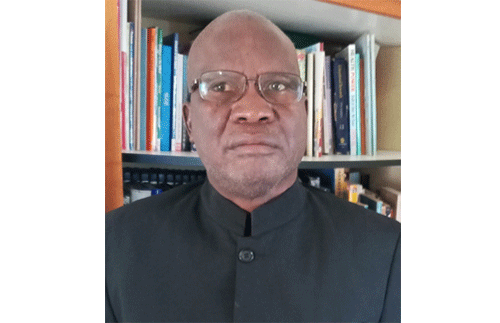Prof. Makala Lilemba
Namibia has lately been rated by the World Bank as one of the countries with the highest inequalities and skewed economic development in the world. Indeed, if one criss-crosses the regions in the vastness of this country, one can see this reality with amazement. One minister even remarked that she has never seen such poverty until she visited that San village. This is quite disturbing for Namibia to attain such a reputation after 30 years of self-determination, as one of the main aims of independence was to bridge the socio-economic gap between the rich and poor. If small countries like Singapore and Japan without mineral resources could become some of the Asian tigers in terms of socio-economic development, surely Namibia after these successful stories could also make it. Although government has been trying to have some developmental schemes realised, more needs to be done.
Like Cuba, Namibia should have strived for extensive literacy in order to produce citizens who can at least read and write. The government has put up some literacy structures throughout the country, but their effect has been very minimal. In some places, the centres have collapsed, and it seems less likely that much is being done to revive them. These programmes should aim in enlightening the citizens to read easy government developmental projects. Efforts should be made to find out the causes of the negative responses from the products and consumers of the literacy programmes and education.
The councillors should be in the lead in creating these centres in every constituency. These centres should come up and share courses like sewing, carpeting, plumbing and bricklaying in the constituencies countrywide. The councillors should, instead of busying themselves with party political propaganda, concentrate on developing their constituencies, as this is the reason for their being elected into those offices.
Regional councillors should spearhead agricultural extension programmes in order to assist their electorates. Agricultural extension officers should go out there to assist both the farmers and communities to improve their farming methods. Communities should be encouraged to come up with vegetable and fruit planting projects. Green schemes and projects like those at Shadikongoro and Etunda should be extended to other regions. More and massive agricultural initiatives should be established in all regions. The end-results of these efforts will be food and self-employment for every Namibian.
Provision should be made to cater for these marginalised groups. Efforts to mitigate these challenges have not made significant impacts. In fact, there should be centres build in all constituencies to cater for the marginalised and needy children, offering vocational and technical lessons in the process. Namibia could tap such wisdom from other countries like Israel, where similar facilities are established to assist such children.
Despite government focusing and paying more attention on the group of so-called children of the liberation struggle, there are others who are still left out. Nevertheless, it should be noted that the whole concentration on this group is discriminatory, as all Namibians are equal before the law, and should be given undivided attention and access to the national cake and other opportunities. Whereas some of the parents of this group sacrificed their lives in fighting for the liberation of this country, it is equally important to acknowledge that some children lost parents inside the country, killed by the South African Security Forces. This group should equally be deindoctrinated into thinking that independence was brought aboutby their parents. Still, there are members of this group whose umbilical cords are buried somewhere in this country. What is important is that this group should also be given courses which will enable them to become self-reliant.
Upon the dawn of independence, government came up with the brigade system in an effort to empower people in terms of self-reliance in many sectors. This system, which was initially introduced in Botswana by Patrick van Rensburg to develop the rural areas and cater for those who could not proceed to secondary schools and university, assisted the less privileged citizens. Whatever happened to our brigade system to lead to its collapse should be revisited, and the shortcomings corrected. Although it is not a perfect system, improvements can be made to address the shortcomings.
This system of alleviating poverty has worked in many African countries where people, mostly women, come together and form a cooperative from where they sell their goods and share the profits together. Israel has managed with this system, which is called kibutz, in which members work for free, but for the good of everyone in the group and for their children.
These centres should provide shelter and education for those Namibians who might become disoriented for one reason or another. We have many people in this country who roam around, and found to be unstable in their minds. Councillors and communities should work together in identifying these individuals and shepherding them to rehabilitation centres, where they should be reformed to become normal people who should contribute to society.
Namibia can do better if there is political will from the councillors and communities to spearhead the developmental projects in their constituencies, which should ultimately minimize, if not completely eradicate this scourge.


